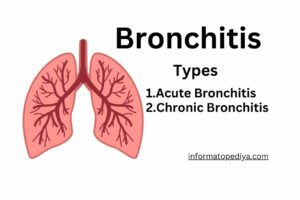
Introduction
Losing weight is a common goal for many people, but the approach that they take to achieve this goal can vary. Some people prefer to follow strict diets, while others focus on making lifestyle changes. In this blog post, we will explore the differences between dieting and lifestyle changes and their respective advantages and disadvantages.
Dieting
Dieting is a short-term approach to weight loss that involves following a strict eating plan for a set period of time. The goal of a diet is to create a calorie deficit by consuming fewer calories than your body burns. Some popular diets include low-carb, low-fat, and intermittent fasting diets.
Advantages of dieting:
- Quick results: Dieting can lead to rapid weight loss, especially in the initial stages.
- Easy to follow: Many diets come with specific meal plans and guidelines that make it easy to know what to eat and when to eat it.
- Structured approach: Dieting provides a structured approach to weight loss that can help people stay focused and motivated.
Disadvantages of dieting:
- Unsustainable: Diets are often unsustainable in the long term because they require a significant amount of willpower and discipline.
- Limited food choices: Many diets restrict certain foods or food groups, which can make it difficult to stick to the diet and may lead to nutrient deficiencies.
- Yo-yo effect: Following a strict diet for a short period of time can lead to weight loss, but once the diet is over, many people regain the weight they lost and sometimes even more.
Lifestyle Changes
Lifestyle changes are a long-term approach to weight loss that involves making permanent changes to your daily habits and routines. This approach focuses on creating a healthy lifestyle that includes regular exercise, a balanced diet, and stress management techniques.
Advantages of lifestyle changes:
- Sustainable: Lifestyle changes are sustainable in the long term because they involve making permanent changes to your habits and routines.
- Flexible: Lifestyle changes are flexible and allow for a variety of food choices and physical activities.
- Improved overall health: Lifestyle changes not only lead to weight loss but also improve overall health and reduce the risk of chronic diseases.
Disadvantages of lifestyle changes:
- Slow results: Lifestyle changes can take longer to produce visible results compared to dieting.
- Requires patience and commitment: Lifestyle changes require patience and commitment because the results may not be immediate.
- Requires discipline: Making permanent changes to your habits and routines requires discipline and may be challenging for some people.
Dieting vs. Lifestyle Changes: Which is Better?
Both dieting and lifestyle changes can lead to weight loss, but the approach that is best for you will depend on your individual goals and preferences. For example, if you are looking for quick weight-loss results for a special event, a diet may be a better option. However, if you are looking for long-term weight loss and improved overall health, lifestyle changes are the better choice.
Ultimately, the key to successful weight loss is finding an approach that works for you and is sustainable in the long term. It is important to consult with a healthcare professional before starting any new diet or exercise program to ensure that it is safe and appropriate for your individual needs.
Conclusion
Dieting and lifestyle changes are two approaches to weight loss that have their own advantages and disadvantages. While dieting may provide quick results, it is often unsustainable in the long term and can lead to the yo-yo effect. On the other hand, lifestyle changes may take longer to produce visible results but are sustainable and lead to improved overall health. The best approach to weight loss is one that is tailored to your individual needs and preferences and is sustainable in the long term.







. I can sense the dedication that goes into each blog post.